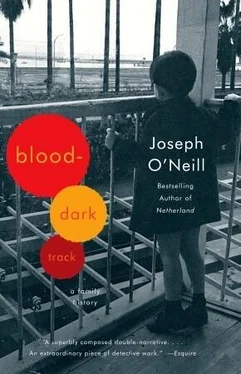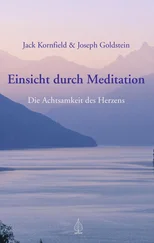It only occurred to me afterwards, as I stood on the balcony of my room looking out towards the lights of the port of Iskenderun, that the hotel I’d chosen at random was named after the Hittites. This made me think of John Garstang. In 1957, the archaeologist returned to Mersin after an interval of ten years. He was met off the boat by Joseph Dakak, who was delighted to see his extremely old and very frail friend and accompanied him to the hotel. After a rest, Professor Garstang and others drove out to the Hittite site at Karatepe, where the Englishman drew himself up and gave a speech to the assembly of onlookers. On his return to Mersin, John Garstang was again met by Joseph and rested one last time at the hotel. Then he returned to his ship, where he died.
It gave me pleasure that my grandfather’s friend had lived long enough to return to the scene of his life’s greatest work, just as it pleased me that Denis Wright had prospered and that Norman Mayers, after serving in a variety of posts in El Salvador, Costa Rica, and Brazil, finally retired as the ambassador to Ecuador; Mayers died in 1986, at the age of ninety. On the subject of afterlives, I could not help smiling at the thought of what happened to Nazim Gandour. The Lebanese merchant returned to Mersin after his release from internment and carried on doing business there until the late ’sixties, when he skipped town and returned to the Lebanon owing the Turkish Republic a fortune in taxes. He thus revealed himself to be a levanter in the secondary sense of the noun, too: one who absconds, especially with bets unpaid. What happened to Osman Emre Bey and Hilmi Bey I never found out. I hoped they lived more happily, and longer, than the other people apparently involved in Joseph Dakak’s apprehension. These fared badly; so badly, indeed, that superstition might lead one to attribute their fates to nemesis. Williams, the SIME man in Mersin, was accidentally shot dead in Athens in 1944. Desmond Doran died in a bomb explosion in Tel Aviv in 1947. His boss in Istanbul, Thomson, was killed by EOKA in Cyprus in the early ’fifties; and Harold Gibson, Arthur Maltass’ boss, committed suicide in Rome over enormous debts run up by the Rumanian dancing girl he’d married.
Thankfully, the jinx was not uniformly fatal. Arthur Maltass, as far as I knew, merely fell into professional disgrace. Towards the end of 1943, it came to Denis Wright’s notice that a local importer had given Maltass a brand new Japanese or German bicycle, and, armed with this evidence of unpatriotic corruption, the consul was able to arrange for Maltass’ recall home — much to his distress, Wright said, as he was in his element in Mersin, where he used his position in Economic Warfare to threaten Mersin merchants with the Black List.
Denis Wright also put an end to the activities of William Rickards. On the consul’s advice, the British embassy concluded that ‘It is scandalous that Lloyd’s should allow Rickards to act for them’ and terminated his Lloyd’s agency in Mersin on 8 May 1944. On 6 June 1944, Rickards wrote to the British ambassador:
I beg to mention that since the beginning of this year I have noticed a difference in the attitude of the Mersin consulate towards me. A few months back I heard that some of our people of influence, for reasons of their own, were planning to relieve me of my post as Lloyd’s Agent. One of them openly boasted to Syrian friends of hers that she was going to take Lloyd’s agency from Rickards. Though I disregarded this information at the time I regret to say it has now come true.
After conscientiously and faithfully serving my Country and Lloyd’s during the past four difficult years — I refused several offers of partnership in important firms to devote my time exclusively to Lloyd’s work — I find I have not had a fair deal and therefore have a right to know the reason for this change which has affected my position in town and is likely to have harmful effects on my business in the future.
The embassy never replied. On 10 November 1944, a diplomat there recorded that ‘the notorious Rickards had completely faded into the background and was giving no trouble’.
But perhaps the most telling fate was reserved for Franz von Papen, my grandfather’s alter ego. The German ambassador, who quit Ankara in August 1944, went on the run after the Allied invasion of Germany and was captured in April 1945. He was moved from place to place for interrogations until, finally, in August, he was taken to Nuremberg and imprisoned in a cell of the Palace of Justice. The cell was furnished with a collapsible bed, a grey blanket, a small table and a stool. The light fixture had been removed from the ceiling and thick iron bars secured the window. As a precaution against suicide, the hatch in the door was permanently open to enable observation by guards. Like Joseph Dakak — and Nazim Gandour and William Rickards — Papen experienced the torment of not knowing what crime he was supposed to have committed. Under interrogation, he was persistently pressed on why he’d continued to serve Hitler in the face of the Anschluss and the Nazis’ acts of political terror and persecution, particularly of Jews. Papen, who pointed out that in Turkey he’d helped 1,500 Rumanian Jewish children escape to Israel, said he had acted out of patriotism rather than for the good of the Nazi party. In October 1945, he was charged with conspiring to prepare for a war of aggression. In October 1946, he was acquitted of war crimes, although the Nuremberg court found that he’d engaged in ‘bullying and intrigue’. Papen’s ordeal was not over. As soon as he left the Palace of Justice he was taken into the custody of the Bavarian police for denazification. In January 1947, a denazification court found Papen guilty of aiding and abetting Hitler in his rise to power and conspiring to overcome President Hindenberg’s objections to Hitler becoming Chancellor. He was sentenced to eight years in a labour camp, his personal assets were confiscated, and he was deprived of his civil rights. From April 1947 to February 1949, Papen was moved from one camp to another. Like Joseph Dakak, his imprisonment led to heart trouble and, in May 1948, hospitalization. On appeal, the Court of Appeal classified Papen as ‘incriminated in Category II’ and assessed his contribution to the Wiedergutmachung at DM30,000. He was also deprived of the right to vote, receive a state pension, hold political office, drive a car, or perform any work except ordinary labour. The former Chancellor and ambassador devoted the years that followed to the defence of his reputation, writing a memoir and articles. As a result, the highest court in Bavaria reviewed his case in May 1965 and downgraded his incrimination to Category III, which restored his civil rights. He died in 1969. Why Papen, a deeply reactionary Catholic monarchist but not a Nazi, allowed himself to be used by Hitler was a question that detained historians. The emerging consensus was that his doubts about Nazism, such as they were, were exceeded by the desire, which Joseph Dakak knew well, to be in the mix of things, to be a player. The two men were also linked by a weird symbolic detail. Immediately after his acquittal of war crimes, Papen went to the refectory for lunch. In order to distinguish him from those defendants found guilty, his place at the table was marked by the presence on his plate of Joseph Dakak’s beloved fruit, an orange.
In May 1999, my attention was caught by two news items from Ireland. I read, first of all, that in the preliminary proceedings of the Bloody Sunday Inquiry, convened in response to an intense campaign by nationalists, the (Catholic) families of the victims were resisting the grant of anonymity to British soldiers present at the scene of the shootings. Next, I read that an effort was underway to locate and exhume the remains of Catholics alleged to have been informers who had been killed by the IRA over twenty years previously. It was an awful, inconclusive business, with the families of the dead waiting in suspense as Gardai, acting on information received from republican sources, dug around bogs and beaches with no success; evidently, it was far from easy, after so many years, for anybody, even the deceased’s executioners, to remember exactly where the graves were situated. The silting up and erosion of the coast, the dying and cutting and growth of trees and shrubs, the disappearance and appearance of buildings, all of these alterations had removed the landscape beyond the scope of recollection or recognition. But the urge to uncover the past, when it is a component of the inextinguishable and tormenting urge for justice, is extremely powerful, and the search for skeletons continued.
Читать дальше
Конец ознакомительного отрывка
Купить книгу












